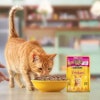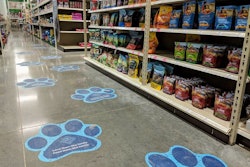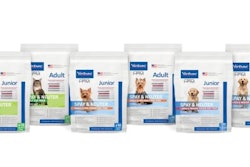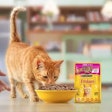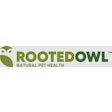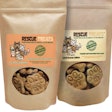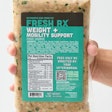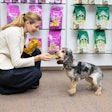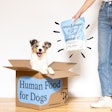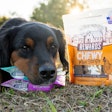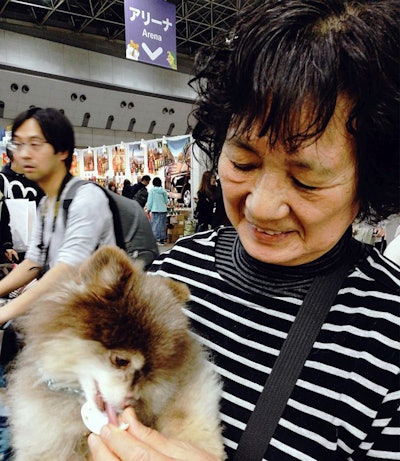
The development of pet food based on genetics and gut microbiomes, and big data on pet insurance will continue to be the thrust of Anicom Pafe and Anicom Insurance in 2023.
As subsidiaries of Japanese business management Anicom Group, both have been working together since 2021 to create pet foods tailored to individual animals' health status. Anicom Insurance provides pertinent data accumulated through thousands of pet insurance contracts while Anicom Pafe handles over 300,000 animals' genetic screenings and gut microbiota testing.
The results so far are the Kimi no Gohan (in English, "Your Food") and Minna no Gohan ("Everyone's Food") custom kibbles primarily made from pork meal, rice flour, beer yeast and beet pulp.
Kimi no Gohan was launched in August 2021 and has two types: Kimi no Gohan DNA, which is based on the results of genetic testing for dogs, and Kimi no Gohan Intestinal Flora, which is based on the results of gut microbiota measurements.
In 2022 Anicom released Minna no Gohan with one variant each for Shiba Inus, Toy Poodles, Chihuahuas, Miniature Dachshunds and “All Dog Breeds.”
Anicom representative director Nobuaki Komori said their surveys and research on the intestinal flora of pets since 2016 revealed that the more diverse the intestinal environment, the better the health of the dogs. He also said variations in diversity increased with age in all five types of dogs.
This means the degree of health is not determined only by congenital factors (such as breed), but also changes according to acquired factors (food, environment, lifestyle, etc.). Anicom believes creating an environment where various types of bacteria can live in a well-balanced manner in the intestines may lead to healthier pets.
Pets are living longer now, says Anicom
As a preventive insurance firm, Anicom is pleased to report that dogs and cats in Japan now live longer. Anicom's Home Animal White Paper 2022, which summarizes pet disease statistics and insurance claim data for pet insurance, showed that dogs on average live for 14.1 years while cats stick around for 14.4 years, both of which were the longest ever estimates based on company records since 2018.
The current life expectancy rate of pets insured with Anicom was analyzed between April 1, 2008 and March 31, 2021 (from contract start date to termination).
As cats overtake the number of pet dogs in Japan, the white paper also featured for the first time disease statistics for eight of the most popular cat breeds in the country. For example, mixed-breed cats are more likely to suffer from periodontal disease/gingivitis and elevated liver enzymes than other cat breeds, while Scottish Folds are more prone to arthritis and valvular disease, and American Shorthairs tend to develop cardiomyopathy more than other cat breeds, the white paper noted.
As for dogs, data on 30 popular breeds were analyzed and the Toy Poodle came first again as the most popular breed for 14 consecutive years. “Mix dog” is expected to stay as the second favorite breed in 2023 and it includes the “Marupu” (mix of Maltese and Toy Poodle), “Chiwax” (mix of Chihuahua and Mini Dachshund), and “Dappu” (mix of Miniature Dachshund and Toy Poodle).
The company has been publishing the White Paper on Home Animals for more than 10 years to prevent diseases and deaths. By analyzing the attributes (breed, age, gender, etc.) and health conditions (injuries and illnesses of more than 4 million insurance claims per year) of animals contracted by Anicom Insurance, they are able to create big data to guide their research and development on pet food and pet-related goods and services.
In a way, the insurance data give animals a voice about their health needs, the company said.
